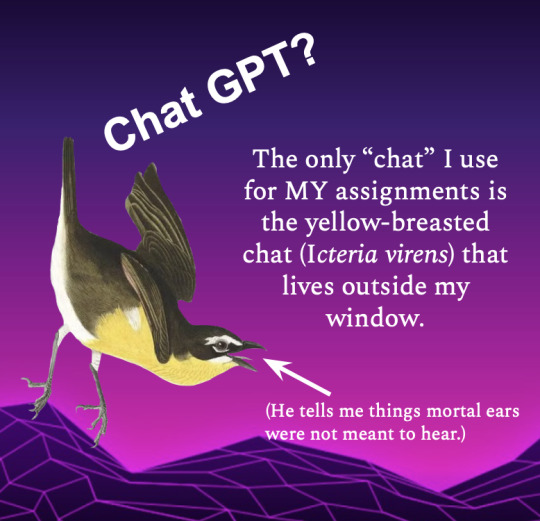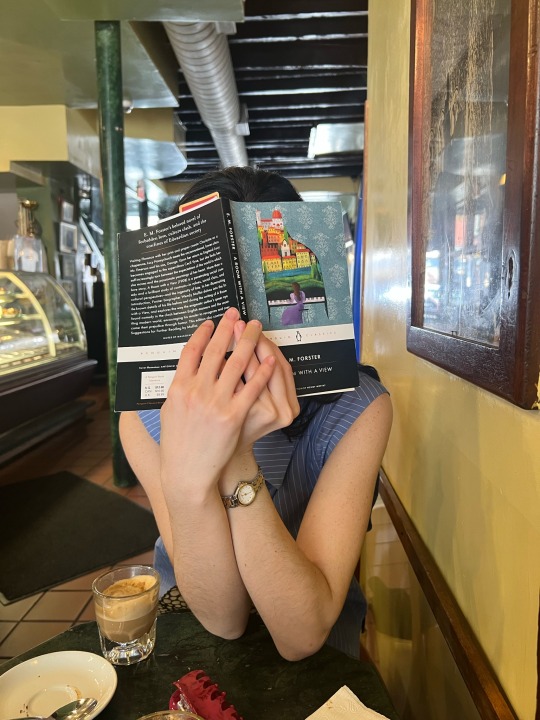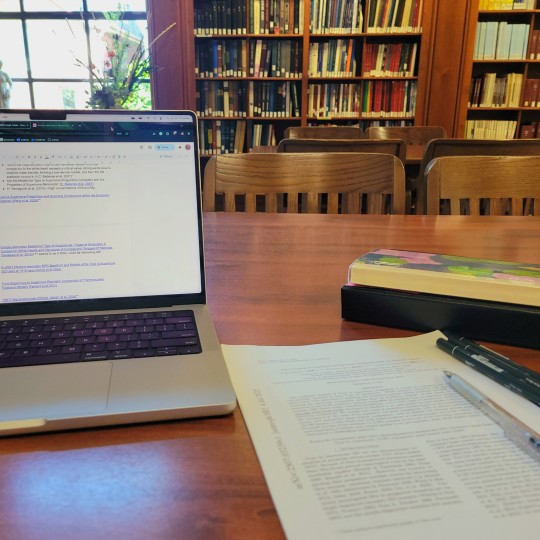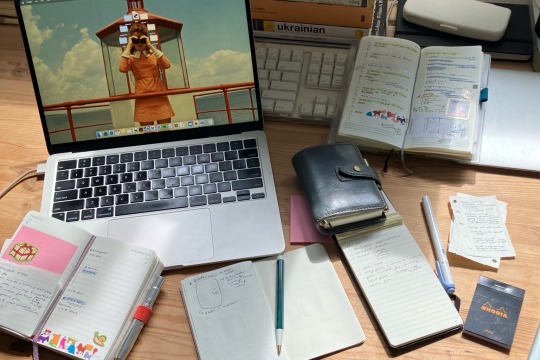#studyblr
Explore tagged Tumblr posts
Text
focus on the likes and not the wants


you may not want to clean your room, but you like the peace and call it brings you after
you may not want to study, but you like the confidence and satisfaction you get from being prepared
you may not not want to apologise, but you like the relief and connection that reconciliation brings
you may not want to cook, but you like the satisfaction of eating a healthy come cooked meal prepared with love
you may not want to exercise, but you like how you feel afterwards and how it makes you confident
you may not want to journal or write, but you like the reflection and calm it brings you
you may not want to step out of your comfort zone, but you like the new experiences and growth you gain from it
my insta @ malusokay
#malusokay#girl blogger#askmalu#coquette#it girl#pink blog#that girl#aesthetic#dream girl#pink pilates princess#gaslight gatekeep girlblog#this is a girlblog#girlblogging#gaslight gatekeep girlboss#girlblog aesthetic#girlblogger#motivateyourself#motivation#law of manifestation#manifesting#manifestation#glow up journey#glow up#self esteem#self care#self love#self worth#coquette dollete#studyblr#study motivation
16K notes
·
View notes
Text

#aesthetic#dark academia#coffee#art#books#academia#college#light academia#literature#studyblr#life#quotes#relatable
50K notes
·
View notes
Text




#aesthetic#books & libraries#books#bookworm#bookish#book aesthetic#books and coffee#books and libraries#books aesthetic#read a book#dark romanticism#dark moodboard#literature#vintage#dark acadamia#darkness#dark academia books#romanticism#romantic academia#light academic aesthetic#light academia moodboard#studyspo#studyblr#light academia#study#student life#mine#dark academia aesthetic#dark academia#romantic
221 notes
·
View notes
Text
Took me until about halfway through college before I realized “study” means “play with the material in a variety of ways until you understand it” and not just “read the assigned chapters and do the homework” and I think that probably should have been discussed at some point prior to that.
91K notes
·
View notes
Text

15K notes
·
View notes
Text




07.11.25
recent-ish photos. it’s a bit odd to think that i’ve lived in boston for almost four years now, and likely won’t be leaving anytime soon. i don’t think i ever conceived of myself as a city person… not that it really means all that much in terms of personal identity, but the fact of the matter is that where you’re from affects how others perceive you, even if it’s just context for how you spend your days. when i travel, i’m someone who’s from boston… for whatever that’s worth.
🎬 : in the mood for love (2000) dir. wong kar wai
🎧 : the road - danny o’keefe
97 notes
·
View notes
Text

my trick for getting through grad school is learning to navigate the quadrants with all their nuances
#i made a version of this as a joke in my first months but after staring at it for a year+ there is something real in it#phdblr#grad school#studyblr#gradblr
132K notes
·
View notes
Text
master the subjects you hate: a how-to guide (from someone who has done it) ˖ ࣪ ·͜·♡ 𝜗𝜚˚ ༘ ೀ⋆。 📔🎀



have you ever had that one subject which has always been your problem subject? where every time you study it or sit in class and see others succeeding effortlessly, all you find yourself wishing is that you could just master it and move on with your life?
well, this was me my entire life, up until a few years ago. the dreaded subject? mathematics. but instead of suffering endlessly under the torture of its reign over me - I decided to take a different approach. what if i could master it? no longer have it haunt my shoulder in life?
well, that's exactly what i did.
and now? i'm a biomedical engineering major.
okay, okay. am i saying you will now become a famous philosopher, writer, mathematician, historian, artist, etc. by following these tips? of course not. it can happen though. or at minimum, that subject won't be an enormous pain in your side anymore. which is very much worth it, in my opinion <3


♡ step 1: get clear about your goals.
first, you need to outline how you envision yourself. back when I was in grade 10, there was a moment when I realized just how annoyed I was with not understanding math. i took out my journal and started writing out my goals for the subject. what did I want? i wanted to be able to solve problems effortlessly and get my homework done. i wanted to truly understand the subject - not just enough to finish the homework but enough that I could write any test and ace it.
back when i changed my study game, it was all during covid, when we all went online during school. i was in grade 9, and with those last few months of school online and with the summer, I decided to change my life.
if anyone remembers 2020/2021, im sure you remember the craze over bullet journalling. that's what I used for all this. i used it to plan out my days, which let to me planning out different things I visualized myself as I changed my life, and that included mastering my subjects and becoming that studious it girl.
write out these goals. figure out exactly what you want. make a vision board, use Pinterest, use your notes app. figure out who you want to be.


♡ step 2: romanticize (but not in the way you think).
if you've made it this far, you may be like "this is such generic advice for general goal planning. what is so revolutionary about journalling ?" stick with me. trust. this is the step that revolutionized my study game. it made me go from someone considered a pretty good student to someone that teachers would talk about, someone who was not just pretty good but excellent.
so what did i do? its not "romanticize" the way everyone uses the word these days, exactly. and its not really a very pretty or aesthetic method. but it works.
see everything with a different lens.
take math, for example. the way i always viewed the subject was basically just something I would probably never understand, something I just wasn't gifted in. i was always a really good writer, remember? i was going to do a bachelor of arts in psychology and go to med school and be a doctor. so math? wasn't my thing. i never understood it the way my friends seemed to so effortlessly do. but that still bothered me greatly.
and it had to change.
instead of viewing it as this enigma, I took a more pragmatic approach. what if I simply broke every single concept down to its most simple parts? and what if... i changed the narrative? instead of it being hard, difficult, not naturally gifted at, impossible... what if I just pretended I loved everything?
i call this "romanticizing", or more accurately probably, gaslighting. i kept telling myself over and over and over again that I loved this subject. specifically, I repeated these a million times and deliberately in my head:
✧ i love math so much!!!!
✧ math has and always comes so naturally to me
✧ math is my favourite subject
✧ math is actually really easy, all I have to do is break down the topics
✧ i can understand every single thing I learn
✧ i am a math prodigy
years later, manifestation and the law of affirmation really started gaining traction in social media. but its funny, I accidentally invented this strategy for myself when I was 15. I didn't even know what manifestation was; I just decided that I wanted to no longer struggle. and look, here's an important fact to remember: I did not do all of this so I could become an engineer. i literally wanted to be a doctor, and becoming an engineer was a funny side-effect of becoming so good at math and wanting to pursue it more than other subjects. with this method, which I still use, I actually, genuinely fell in love. It taught me where my true interests lie.
some other essential things i did?
✧ inspire myself with history and context. i always loved history and research. if I wanted to inspire myself into a topic, I researched the history behind the mathematical subject. for example, for trig, I researched where the original trig functions, cosine, sine and tangent came from, learning the history behind mathematics and Egypt. and let me tell you, I never forgot my trig functions after that.
✧ ask the teacher for help every single time I had even the smallest, most insignificant question. and if still no good answer i google, and then, only then, do i ask my friends for help. teachers are literally paid to help you. so many students forget this and get intimidated. don't let this be you. what sets top and stellar students apart is doing uncomfortable things. i literally don't care if you sit with the teacher the entire class, lunch, after school etc to understand that topic. you do what needs to be done.
✧ master every single small detail. i started realizing that all the small details of misunderstanding were what were hindering my understanding. you know when you do a problem and there's this baby question you have that stops your understanding at like 85% instead of 100%, and you're too lazy to ask the teacher or a friend or you just don't get a good answer and drop it? don't do this. i became obsessive about ensuring I understood a concept literally 110% before moving on. the history research helped so much with this. i remember even for chemistry, I would read university-level pages on topics so by the time the test came, I would be such a master at the topic I felt like I could teach the teacher, or write and mark the test. true understanding and passion made me not just a master of a topic but genuinely intelligent and able to come up with my own interpretations, opinions and shortcuts in my subjects. you would think opinions and interpretations are only in the arts. you would be mistaken.
now this point all might be a little controversial since it may seem a little obsessive and time-consuming, but anything worth it takes resources. and I never said it was a pretty method. but it does work.
✧ stopped viewing teachers in a negative light. you know how when you have a teacher and everyone says, "this is the worst teacher ever, you will hate them" or "I feel so bad for you, no one has ever passed in their class"? danger, danger, danger. never let others form opinions for you. i started ignoring absolutely every single thing a person said about a teacher. i started gaslighting myself into beliveivg every single teacher was amazing and would help me and I have no issues with them whatsoever. now of course this doesn't count if there is a serious issue with a teacher where they are doing things that need to be reported. I'm talking about when everyone hates a teacher for being a hard marker or a bad explainer. don't view your teachers in that way. and it won't make you a teacher's pet, trust me. after I did this, teacher's were so warm towards me and I really became memorable to them, especially since I would ask so many questions (helpful for letters of reccomendation). i remember there was this one teacher we had where literally no one, in all his years of teaching, would ever get more than a 60% on a paper. everyone hated this man. but I focused on what he wanted from us: and delivered. which no one ever did. i realized he was pushing us to write the best papers we ever could. and I got 100s in his class. people literally had no idea how I did it. i simply smiled. and my writing skills after being taught by him and listening? insane.



♡ step 3: watch your life change.
okay, here's the part where things really come together. once you start with one subject, watch the effect spread to your other ones. once i mastered math, you better believe i did the same thing with physics. this subject especially i ignored everyone's perceptions and focused on myself and my own learning. i didn't care what other's thought at all. this expanded to chemistry, and biology.
what was interesting what its effect on english and history. i mentioned that i was already a pretty decent writer and was doing well in these subjects. but all of this? i subconsciously started applying these principals to these subjects, too. it made me a phenomenal writer. and i started reading more, more advanced books, asking more questions, thinking more deeply, writing more complexly, all applying these principals.
♡ conclusions.
once you become passionate about something, replace negative thoughts/phrases with positive ones, watch your life change. that passion? it will show you what you are actually, truly interested in. i was always an ambitious child, i always wanted to be a doctor. not because my parents wanted me to but because i had an interest in medicine, though i was always on the fence about dealing with patients everyday since its not really my thing exactly. but once i started realizing i am the master of my fate, and i can master anything i want, i realized that i was very interested, talented and passionate about the intersection of technology and medicine. i went from ambitious.... to driven, sharp, laser-focused, a force to be reckoned with.
i could talk endlessly about this. its something i am very proud of and has genuinely, sincerely changed my life.
if you have any questions, let me know below. and if you want to learn more about biomedical engineering, let me know and i will consider making a separate post about it ! thanks for reading <3
#study blog#studyblr#study aesthetic#study motivation#advice#coquette#girlblog aesthetic#girlblogger#girlblogging#just girly things#female rage#girl interrupted#just girly thoughts#lana del rey#divine feminine#self love#self care#self discipline#fyp tumblr#it girl energy#clean girl#health and wellness#wellnessjourney
137 notes
·
View notes
Text



95/100
#studyblr#stem academia#women in stem#100 days of productivity#study space#study motivation#study blog#studyspo#realistic studyblr#academia#academic validation#academics#classic academia#dark acadamia aesthetic#dark academia#grey academia#light academia#romantic academia#chaotic academia#stem student#study hard#study inspiration#study notes#study desk#study with me#studyblr community#studying#studyinspo#university student#student
344 notes
·
View notes
Text


| 12 july 2025 |
found a new part of my local (off-campus) library, they had redone it a couple months ago and it has this beautiful stained glass!! I was the only one in there for a solid 2 hours, its was nice :)
🎧 | night flow – storm mollison
#studyblr#studyblrspace#studyspo#studyblr college#study motivation#gradblr#stemblr#books and libraries#books
95 notes
·
View notes
Text
“how do you get stuff done?” with tears in my eyes.
#infj#literature#prose#chaotic academic aesthetic#bookquotes#autumn#studyblr#coffeeandseasons#daily quotes#dark acadamia aesthetic
10K notes
·
View notes
Text



july in my hobonichi weeks
#jpg#int#study desk#study aesthetic#studyblr#study blog#study motivation#bujoinspo#bujoblr#bujo spread#bujo#bujo ideas#bullet journal#journaling system#journal spread#journaling#journal#hobonichi original#hobonichi cousin#hobonichi weeks#hobonichi
72 notes
·
View notes
Text
Who is SHE?
→ journal out who you want to be in 2025:

1. What does she look like? (Physical appearance, style)
2. How does she dress on a typical day?
3. What does she like ?
4. What doesn't she like?
5. What is her behavior like in different situations?
6. (Social interactions, demeanor)
7. How does she prefer to be treated by others? (Expectations from relationships)
8. How does she treat people around her? (Interpersonal relationships, kindness)
9. What does her daily routine entail? (Activities, schedule)
10. At what time does she usually go to bed? (Sleeping habits)
11. When does she wake up in the morning? (Morning routine)
12. What are her hobbies and interests? (Leisure activities)
13. What is her profession or occupation? (Career, job responsibilities)
14. What are her long-term goals and aspirations? (Career ambitions, personal achievements)
15. How does she handle stress or challenges? (Coping mechanisms, problem-solving approach)
16. What type of books does she enjoy? (Cultural preferences)
17. How does she maintain her physical and mental well-being? (Health and self-care routines)
18. Does she have any specific dietary preferences or restrictions? (Food choices)
19. Who are her closest friends, and what are her relationships like with them?(Friendship dynamics)
20. How does she navigate conflicts or disagreements? (Communication style, conflict resolution)
21. What values and principles guide her decision-making? (Personal ethics)
22. How does she spend her leisure time on weekends? (Weekend activities, relaxation methods)
#aesthetic#glow up#glow up tips#it girl#that girl#glow up journey#glow up hacks#glow up guide#that girl aesthetic#that girl moodboard#that girl outfit#becoming that girl#it girl aesthetic#it girl guide#wellnes girl aesthetic#n1pp guide#wellnes girl era#wellnes girl#self love#self care#self improvement#motivation#becoming her#wonyoungism#glowingskin#wellness and health#it girl outfit#wellness girls#health and wellness#studyblr
8K notes
·
View notes
Text
Writing Notes: Fear of Abandonment

Abandonment - desertion or substantial leave-taking by a parent or primary caregiver of their custodial and other responsibilities to a dependent. Dependents are usually children but may also be adult individuals who are ill.
Abandonment Reaction - a feeling of emotional deprivation, loss of support, and loneliness experienced by children who have been deserted or neglected by a parent or primary caregiver. Abandonment reaction is also experienced by adults who have lost a loved one on whom they have depended.
As humans, we depend on others for survival.
Starting from birth, the need to be fed, bathed, clothed, sheltered, and cared for is essential for survival and optimal function.
Because healthy human development requires physical and emotional care, fear of abandonment can result from unmet needs in either childhood or adulthood (Fraley, 2019).
The impact of abandonment issues can have devastating effects on personal wellbeing, relationships, and long-term mental health (Fraley, 2019).
Fear of Abandonment
Not a clinical diagnosis in and of itself.
It is a form of anxiety and a symptom of several clinical disorders, including both mood and personality disorders.
Individuals who experience abandonment are also more likely to have long-term mental health issues (Schoenfelder et al., 2011).
Those who struggle with abandonment issues have a persistent fear of rejection or isolation. It is often characterized by codependency, insecurity, and maladaptive views of power, competence, and intimacy, which makes interpersonal relationships and daily functioning difficult (D’Rozario & Pilkington, 2021).
Signs of Fear of Abandonment
Fear of abandonment can manifest as anxiety, insecurity, and isolation.
Symptoms of abandonment issues can begin in childhood and extend throughout the lifespan if left untreated.
Signs of abandonment issues in children include:
Acting “clingy” or experiencing emotional dysregulation when left alone
Excessively worrying or panicking about losing someone close
Generally fearing being alone
Getting sick more often due to stress
Children may get anxious in new settings, situations, or when dropped off at school or daycare. Symptoms may also lead to isolation, low self-esteem, and unhealthy coping mechanisms such as substance abuse and eating disorders (Mack et al., 2011).
In adults, signs of abandonment issues include:
Pushing people away. This presents as withdrawal, exhibiting trust issues, and the inability to be open and honest with loved ones.
Codependency. Codependency is when individuals rely on other people to meet all their emotional needs. People who become overly needy and possessive in relationships are often codependent.
Anger. They might allow others to get close to them but then become aggressive, reactive, or volatile if they feel threatened or upset.
Long-term effects of abandonment often lead to general anger, mood swings, and lack of confidence (Mack et al., 2011). Fear of abandonment is primarily characterized by the inability to establish or maintain healthy relationships.
Fear of Abandonment in Relationships
Fear of abandonment can negatively affect any relationship (Fraley, 2002). These include professional, intimate/romantic, and social relationships, as well as casual acquaintances.
People who experience fear of abandonment may have ruminating and irrational thoughts (anxiety), question other people’s motives (mistrust), or make false assumptions about how another person interprets an interaction.
For example, a partner might have irrational or excessive fears that their spouse is having an affair because they had been cheated on in the past. The partner constantly accuses their spouse, creating arguments and conflict. The lack of trust and discord creates distance between them, and the couple stops communicating and grows apart.
Signs that abandonment fears are negatively affecting a relationship include (Fraley, 2002):
People-pleasing or one partner always giving too much or reaching out
Envy or jealousy of other people’s relationships
Inability to trust another person
Constant feeling of insecurity in the relationship
Needing to control all decisions and aspects of the relationship
Inability to provide or accept physical or emotional intimacy
Causes of Abandonment Issues
A variety of experiences play a role in fear of abandonment and abandonment issues.
These include (Mikulincer & Shaver, 2010):
Physical or emotional abuse or neglect
Any trauma experienced because of abandonment
Feeling rejected by caregivers
The death of a parent or primary caregiver
Being emotionally or physically abandoned by a friend or loved one
Fear of abandonment generally begins in childhood and results from adverse childhood experiences (or ACEs).
ACEs describe different types of stressful and traumatic experiences, such as neglect, abuse, or traumatic loss (Feriante et al., 2023).
The first year of life is impactful to a child’s development, and a child’s attachment style is formed by the age of five (Feriante et al., 2023).
Abandonment issues are closely linked to insecure attachment styles and the inability to form close, stable relationships.
People will often choose partners or be drawn to relationships that fit patterns from their past, based on attachment styles.
Fear of Abandonment and Attachment styles
Bowlby (1969) defines attachment as a lasting psychological connection between two human beings. As the founder of attachment theory, he believed that parent–child interactions early in life determine cognitive and behavioral social connectedness throughout the lifespan.
Secure attachment styles are demonstrated by a person who can trust and be open to others (Bowlby, 1969). A securely attached person is responsive, warm, and can form healthy close relationships.
On the other hand, insecure attachment results when children have caregivers who are either inconsistently available and nonresponsive or completely unavailable and neglectful (Mikulincer & Shaver, 2010).
The 3 types of insecure attachment styles (Bowlby, 1969):
Avoidant attachment styles are seen in those who cope with abandonment issues by not allowing others to get close. Individuals with avoidant attachment are distant, withdrawn, and not trusting of others. They fear commitment and shut down or end relationships to avoid conflict.
Anxious attachment styles are seen in those who latch on to others and create intensely close, codependent relationships to cope with fears of abandonment. People with this attachment style seem needy and have trouble separating themselves from their partner. They are emotionally reactive and perceive conflict as a threat that their partner will leave them.
Individuals with disorganized attachment styles are uncomfortable with closeness and intimacy and may lack empathy. Disorganized attachment is often associated with antisocial, narcissistic, or BPD traits.
Fortunately, even if insecure attachment styles are developed in childhood, the problematic behaviors and fear of abandonment associated with them can be treated and, ultimately, changed.
Overcoming Fear of Abandonment
While fear of abandonment is associated with many mental health and mood disorders, it is highly treatable.
Individuals who seek help can improve personal wellbeing and interpersonal relationships.
Therapy Treatment Options
Attachment-based therapy uses a supportive client–therapist bond to address issues with mental health, such as depression and anxiety. It targets thoughts, feelings, behaviors, and interpersonal communication that clients avoid or over-amplify based on early-developed attachment styles (Pilkington et al., 2021).
Behavioral therapy incorporates talk therapy to root out unhealthy behaviors and habits that are related to the mental health conditions underlying the fear of abandonment.
Cognitive-Behavioral Therapy (CBT) helps clients identify faulty thinking patterns or cognitive distortions and replace them with more adaptive thinking patterns. This evidence-based form of therapy is effective at treating anxiety and depression and improving relationships through changing perspectives and communication patterns.
Psychodynamic therapy encourages clients to identify and resolve unhealthy unconscious and conscious thoughts about past experiences. Through improving self-awareness and understanding, clients can see how their past may influence present thoughts and behaviors and make changes.
Psychoeducation provides information to a client regarding a diagnosis, treatment options, and underlying theories (such as attachment theory) that may contribute to abandonment fears. Often, understanding and labeling problematic behaviors and fears can be one of the most helpful steps in healing.
Sources: 1 2 ⚜ More: Notes & References ⚜ Writing Resources PDFs On Attachment ⚜ Avoidant ⚜ Anxious ⚜ Secure ⚜ Disorganized
#abandonment#attachment#psychology#writing reference#writeblr#writing notes#studyblr#literature#writers on tumblr#dark academia#spilled ink#writing prompt#light academia#fiction#creative writing#character development#writing inspiration#ilya repin#writing resources
111 notes
·
View notes
Text
one of the biggest things I can advocate for (in academia, but also just in life) is to build credibility with yourself. It’s easy to fall into the habit of thinking of yourself as someone who does things last minute or who struggles to start tasks. people will tell you that you just need to build different habits, but I know for me at least the idea of ‘habit’ is sort of abstract and dehumanizing. Credibility is more like ‘I’ve done this before, so I know I can do it, and more importantly I trust myself to do it’. you set an assignment goal for the day and you meet it, and then you feel stronger setting one the next day. You establish a relationship with yourself that’s built on confidence and trust. That in turn starts to erode the barrier of insecurity and perfectionism and makes it easier to start and finish tasks. reframing the narrative as a process of building credibility makes it easier to celebrate each step and recognize how strong your relationship with yourself can become
#this is my experience so I know it won’t work for everyone#like all things there is no universal formula#we all have different capacities and capabilities#but I like sharing things that work for me in case they can also help someone else#studyblr#study motivation#study tips#university#academia#uni tips
35K notes
·
View notes